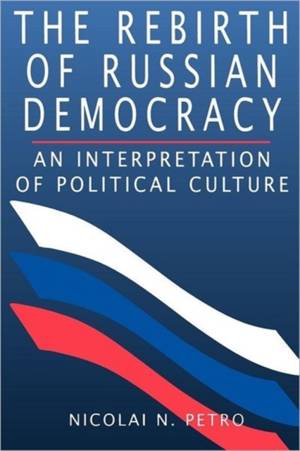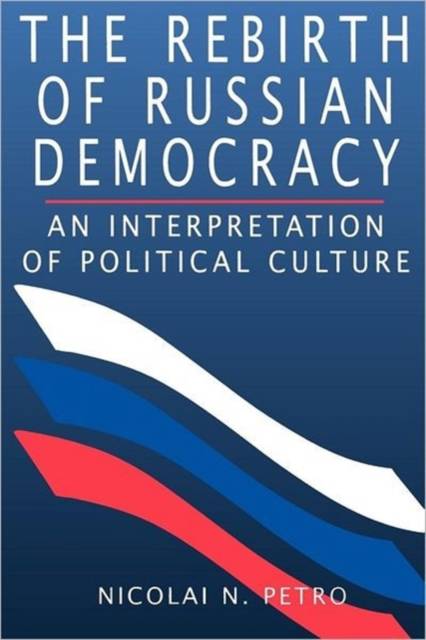
En raison d'une grêve chez bpost, votre commande pourrait être retardée. Vous avez besoin d’un livre rapidement ? Nos magasins vous accueillent à bras ouverts !
- Retrait gratuit dans votre magasin Club
- 7.000.000 titres dans notre catalogue
- Payer en toute sécurité
- Toujours un magasin près de chez vous
En raison de la grêve chez bpost, votre commande pourrait être retardée. Vous avez besoin d’un livre rapidement ? Nos magasins vous accueillent à bras ouverts !
- Retrait gratuit dans votre magasin Club
- 7.000.0000 titres dans notre catalogue
- Payer en toute sécurité
- Toujours un magasin près de chez vous
The Rebirth of Russian Democracy
An Interpretation of Political Culture
Nicolai N Petro
Livre broché | Anglais
67,95 €
+ 135 points
Description
How could the West have better prepared for the fall of communism and gained a clearer picture of Russia's new political landscape? By cultivating an awareness, Nicolai Petro argues, of the deep democratic aspirations of the Russian people since Muscovite times. Petro traces the long history of those aspirations, recovering for us an understanding crucial to our formation of successful foreign policy toward Russia.
Expanding the traditional definition of political culture from single thread to continuous historical tapestry, Petro illuminates a reality previously lost to even the most rigorous Sovietology: the fragility of communism. He portrays an abiding "alternative political culture" that tells us Russia indeed possesses a democratic tradition on which its contemporary democracy rests. Petro's analysis includes many surprising and incisive observations. In a look at the Russian Orthodox Church, he traces its long history of support for opposition sentiment during both tsarist and Soviet times and its support for democracy today. He also explores the character and power of contemporary Russian nationalism and traces its origins to the neo-Slavophile national identity that took its shape as a challenge to Bolshevik oppression. Delineating Russia's postcommunist political parties, the author reveals their roots in prerevolutionary times and explains how this continuity makes Russian political aspirations far more predictable than is commonly assumed. Awakening us to Russia's historical involvement in the democratic quest that lies at the heart of Western values, Petro opens a path for a more meaningful, more productive understanding of modern Russia.Spécifications
Parties prenantes
- Auteur(s) :
- Editeur:
Contenu
- Nombre de pages :
- 240
- Langue:
- Anglais
Caractéristiques
- EAN:
- 9780674750029
- Date de parution :
- 01-09-97
- Format:
- Livre broché
- Format numérique:
- Trade paperback (VS)
- Dimensions :
- 156 mm x 235 mm
- Poids :
- 317 g

Les avis
Nous publions uniquement les avis qui respectent les conditions requises. Consultez nos conditions pour les avis.






